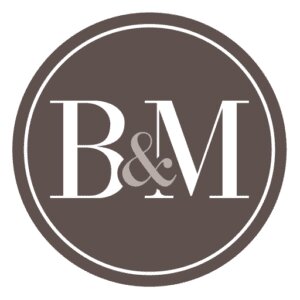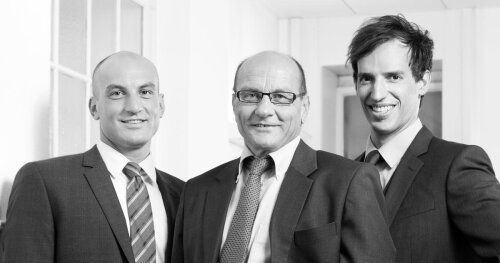Best Drug Crime Lawyers in Lucerne
Share your needs with us, get contacted by law firms.
Free. Takes 2 min.
List of the best lawyers in Lucerne, Switzerland
About Drug Crime Law in Lucerne, Switzerland
Drug crime in Lucerne, Switzerland, falls under the broader Swiss federal legislation, specifically governed by the Narcotics Act (BetmG). This law deals with the regulation, manufacturing, distribution, and consumption of narcotic substances. Lucerne, being a major city, actively enforces these regulations to curb illegal drug activities while providing a framework for medical and scientific usage of certain drugs. Understanding the legal landscape surrounding drug crimes in Lucerne is crucial for anyone facing related charges.
Why You May Need a Lawyer
There are several situations where individuals may require legal help concerning drug crimes in Lucerne:
Possession and Distribution: Being caught in possession of illegal drugs or charges related to the distribution of narcotics can lead to severe penalties, including imprisonment.
Trafficking: Drug trafficking is treated as a serious offense with strict penalties. Legal representation is essential to navigate the complex judicial processes involved.
Medical Marijuana: While Switzerland has regulations allowing medical marijuana under certain conditions, any misuse or misunderstanding of these laws could result in criminal charges.
International Cases: Offenses involving cross-border drug activities require a specialized approach due to the involvement of international laws and treaties.
Drug Rehabilitation and Diversion Programs: In certain cases, individuals may qualify for rehabilitation or alternative sentencing programs. A knowledgeable lawyer can help initiate and navigate these processes.
Local Laws Overview
The Narcotics Act (BetmG) is the primary legislation governing drug-related offenses in Lucerne. Here are some key aspects to consider:
Prohibited Substances: The law categorizes various drugs into different schedules, detailing which substances are illegal and under what conditions certain others can be legally used.
Penalties: Penalties for drug crimes range from fines and probation to lengthy prison sentences, depending on the nature and severity of the offense.
Medical Use: Specific provisions are available for the medical use of certain drugs, such as cannabis, provided the use is strictly regulated and prescribed.
Possession Limits: The law defines the amount of a substance that triggers different levels of criminal responsibility, distinguishing between personal use and trafficking.
Rehabilitation Programs: Legal provisions allow for drug offenders to participate in rehabilitation programs in lieu of traditional punitive measures, under certain conditions.
Frequently Asked Questions
1. What constitutes a drug crime in Lucerne?
Drug crimes include possession, distribution, trafficking, and manufacturing of illegal substances, as well as the misuse of legally controlled drugs without proper authorization.
2. How severe are penalties for drug crimes in Lucerne?
Penalties vary widely, ranging from fines and community service to long-term imprisonment, depending on the type and quantity of drugs involved and prior criminal history.
3. Is it legal to use marijuana for medical purposes?
Yes, but only under strict conditions. Medical marijuana must be prescribed by a licensed physician and used according to regulatory guidelines.
4. Can a minor be charged with a drug crime?
Yes, minors can be charged with drug offenses. However, they are typically subject to juvenile justice procedures, which focus more on rehabilitation.
5. What should I do if I am arrested for a drug crime?
Contact a qualified lawyer immediately. Avoid making any statements to the police until your legal representative is present.
6. Are there any diversion programs for drug offenders?
Yes, Switzerland offers various rehabilitation programs and alternative sentencing options aimed at treating addiction and reducing recidivism.
7. How are drug trafficking charges different from possession charges?
Trafficking involves the distribution and sale of drugs and carries much harsher penalties than simple possession, reflecting the broader impact on society.
8. Can previous drug convictions affect current charges?
Yes, prior convictions can result in more severe penalties as they indicate a pattern of criminal behavior.
9. Is bail available for drug crime charges?
Bail may be available depending on the nature of the charges, the individual's criminal history, and the risk of flight. A lawyer can help argue for bail conditions.
10. What role does evidence play in drug crime cases?
Evidence is crucial. The prosecution must prove the charges beyond a reasonable doubt. Your defense lawyer will scrutinize the evidence to challenge its validity and reliability.
Additional Resources
Here are some valuable resources and organizations for anyone seeking help with drug crime issues:
Federal Office of Public Health (FOPH): Offers information on drug policies and rehabilitation programs.
Swissmedic: Regulates the licensure of drugs for medical use.
Police of Lucerne: Provides insight into local enforcement practices and crime statistics.
Local Legal Aid Societies: Offer free or low-cost legal assistance depending on eligibility.
Rehabilitation Centers: Various local medical facilities offer rehabilitation for drug-related issues, which may be mandated by the court.
Next Steps
If you need legal assistance for a drug crime in Lucerne, consider the following steps:
1. Contact a Lawyer: Seek out a lawyer experienced in drug crime law. Many offer initial consultations to assess your case.
2. Gather Documentation: Collect any relevant documents, including arrest records, witness statements, and personal medical records if applicable.
3. Follow Legal Advice: Ensure you adhere strictly to the advice given by your legal counsel, including attending all court hearings and meetings.
4. Explore Rehabilitation Options: If applicable, engage in any recommended rehabilitation or diversion programs to improve your case outcome.
5. Stay Informed: Understand your rights and responsibilities under Swiss law to better navigate the legal process.
Lawzana helps you find the best lawyers and law firms in Lucerne through a curated and pre-screened list of qualified legal professionals. Our platform offers rankings and detailed profiles of attorneys and law firms, allowing you to compare based on practice areas, including Drug Crime, experience, and client feedback.
Each profile includes a description of the firm's areas of practice, client reviews, team members and partners, year of establishment, spoken languages, office locations, contact information, social media presence, and any published articles or resources. Most firms on our platform speak English and are experienced in both local and international legal matters.
Get a quote from top-rated law firms in Lucerne, Switzerland — quickly, securely, and without unnecessary hassle.
Disclaimer:
The information provided on this page is for general informational purposes only and does not constitute legal advice. While we strive to ensure the accuracy and relevance of the content, legal information may change over time, and interpretations of the law can vary. You should always consult with a qualified legal professional for advice specific to your situation.
We disclaim all liability for actions taken or not taken based on the content of this page. If you believe any information is incorrect or outdated, please contact us, and we will review and update it where appropriate.










